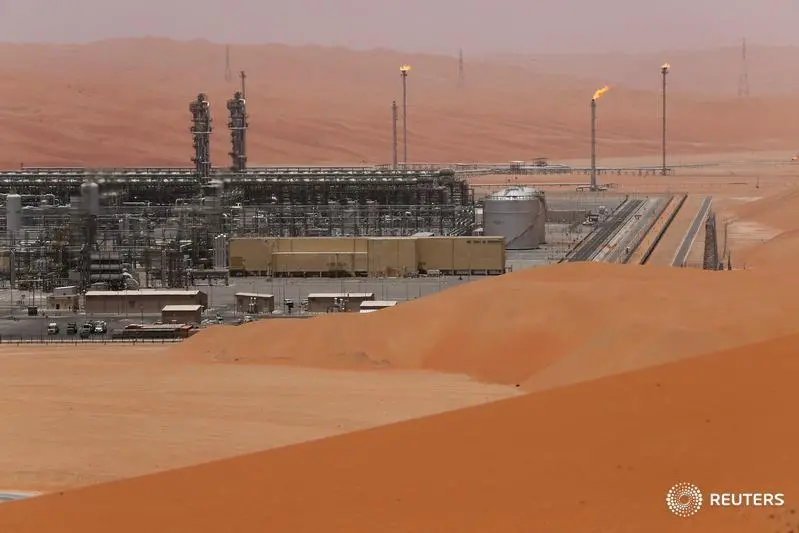PHOTO
MOSCOW- Saudi Arabia will invest $20 billion in the next few years to maintain and possibly expand its spare oil production capacity, Saudi Energy Minister Khalid al-Falih said on Thursday.
Saudi Arabia is the only oil producer with significant spare capacity on hand to supply the market if needed. This currently stands at 12 million barrels per day.
Falih said on Thursday that the country had not decided yet if it wanted to take its capacity up to 13 million bpd or keep it at current levels.
The Saudi energy minister has repeatedly called on other oil producers to invest in capacity building to avoid a supply shock and spike in oil prices.
"This spare capacity is not just a natural reservoir that we have. This is very expensive investments for the kingdom, and some of our partners within OPEC and OPEC+ have elected to invest to maintain (oil capacity) to have the readiness on a short notice," he said at an energy industry event in Moscow.
"The next 1 million bpd of Saudi capacity is going to cost us over $20 billion. It costs us $2 billion a year of operation expenses to staff and maintain these facilities."
The oil market has been watching closely what the OPEC de-facto leader will say and do to calm market supply worries which have contributed to a rise in oil prices rise above $86 a barrel this week.
Saudi Aramco has said it plans to spend close to $300 billion over 10 years in upstream oil and gas projects.
Investing in oil capacity expansion projects are crucial to help Saudi Arabia to sustain its spare capacity and help to reduce pressure on ageing fields.
Aramco will bring new crude output capacity of some 550,000 bpd online in the fourth quarter from two fields - Khurais and Manifa - giving it the ability to boost production when needed.
The additional output would not raise Aramco's capacity above the current 12 million bpd, but would give the company more flexibility to boost supplies and reach higher production levels more quickly than before.
The world's top oil exporter is pumping 10.7 million bpd in October, and plans to produce slightly higher than that level in November, Falih said, reflecting an expected increase in demand ahead of the imposition of U.S. sanctions on Iran, OPEC's third biggest producer.
That leaves Saudi Arabia with a tight output buffer of 1.3 million bpd if there is a sudden supply shortage.
"1.3 (million bpd of spare capacity) will be waiting for the demand to materialise," Falih said.
"Some in Asia have requested more barrels than in the contracts. As a result... the exports will exceed loading schedule at 7.7 million bpd which is a very high number."
Falih also said that he hoped to resume oil production from the Neutral Zone, which Saudi Arabia shares with Kuwait, after resolving the pending issues between the two Gulf OPEC allies.
Saudi Arabia's Crown Prince Mohammad bin Salman flew to Kuwait on Sunday to discuss the resumption of oil output from the Neutral Zone, a source familiar with the matter told Reuters.
The resumption of the Neutral Zone's oilfields could add up to 500,000 barrels per day of oil output capacity to both Saudi Arabia and Kuwait.
(Writing by Rania El Gamal; Editing by Emelia Sithole-Matarise and Jane Merriman) ((rania.elgamal@thomsonreuters.com; +971 562 160 434; Reuters Messaging: rania.elgamal.reuters.com@reuters.net ; Twitter: https://twitter.com/Rania_ElGamal))





















